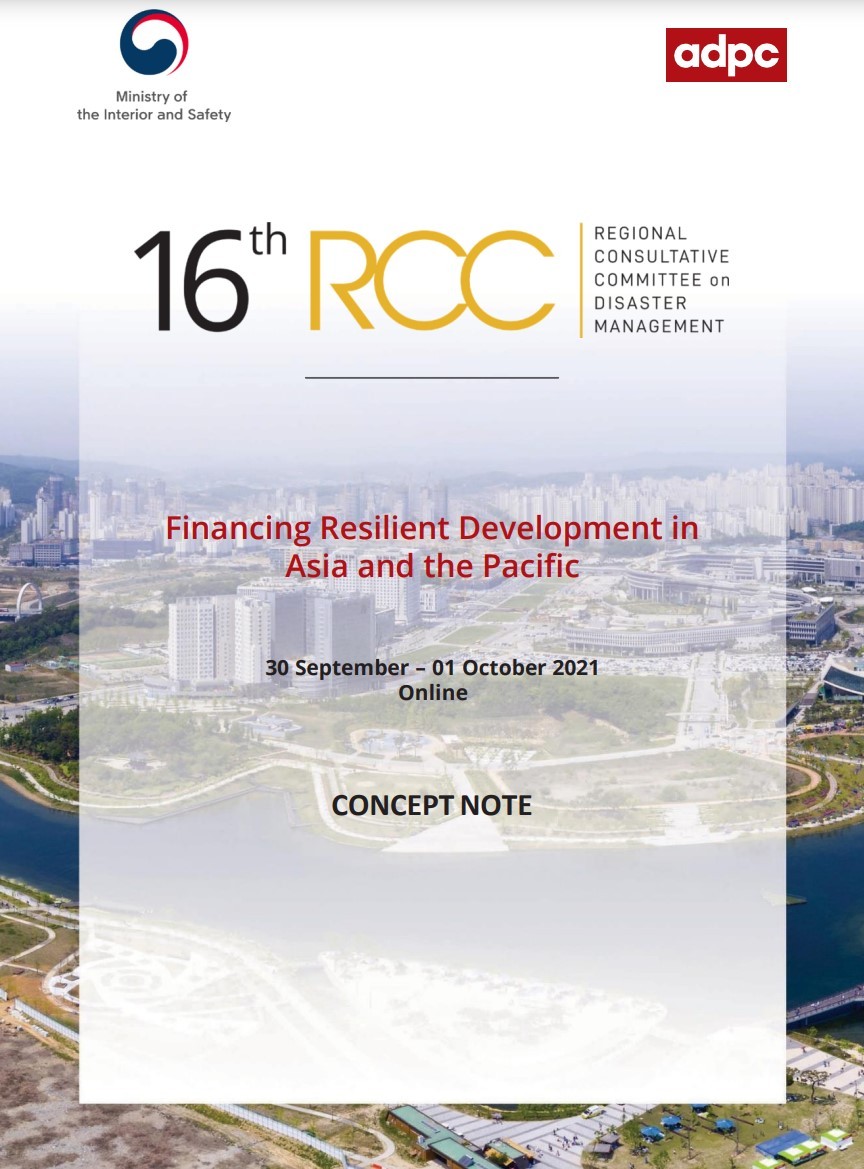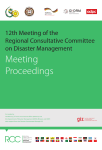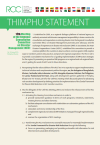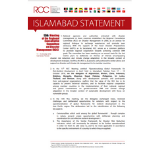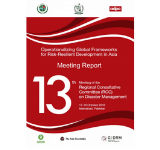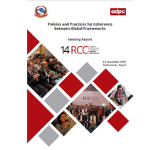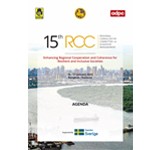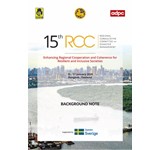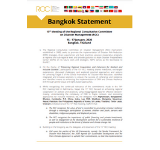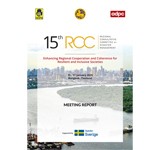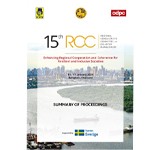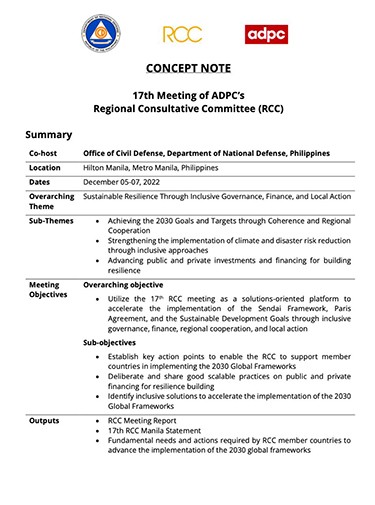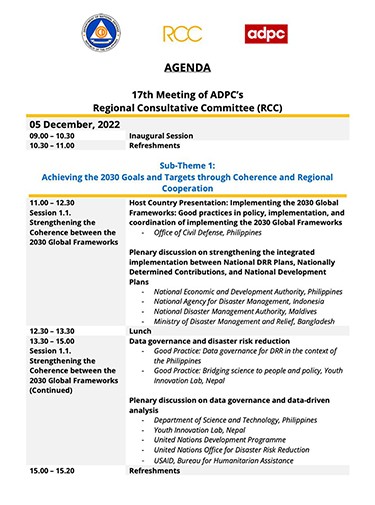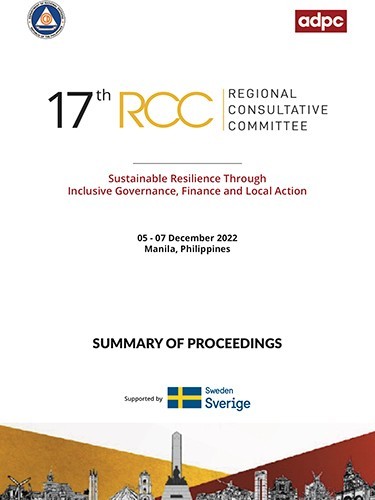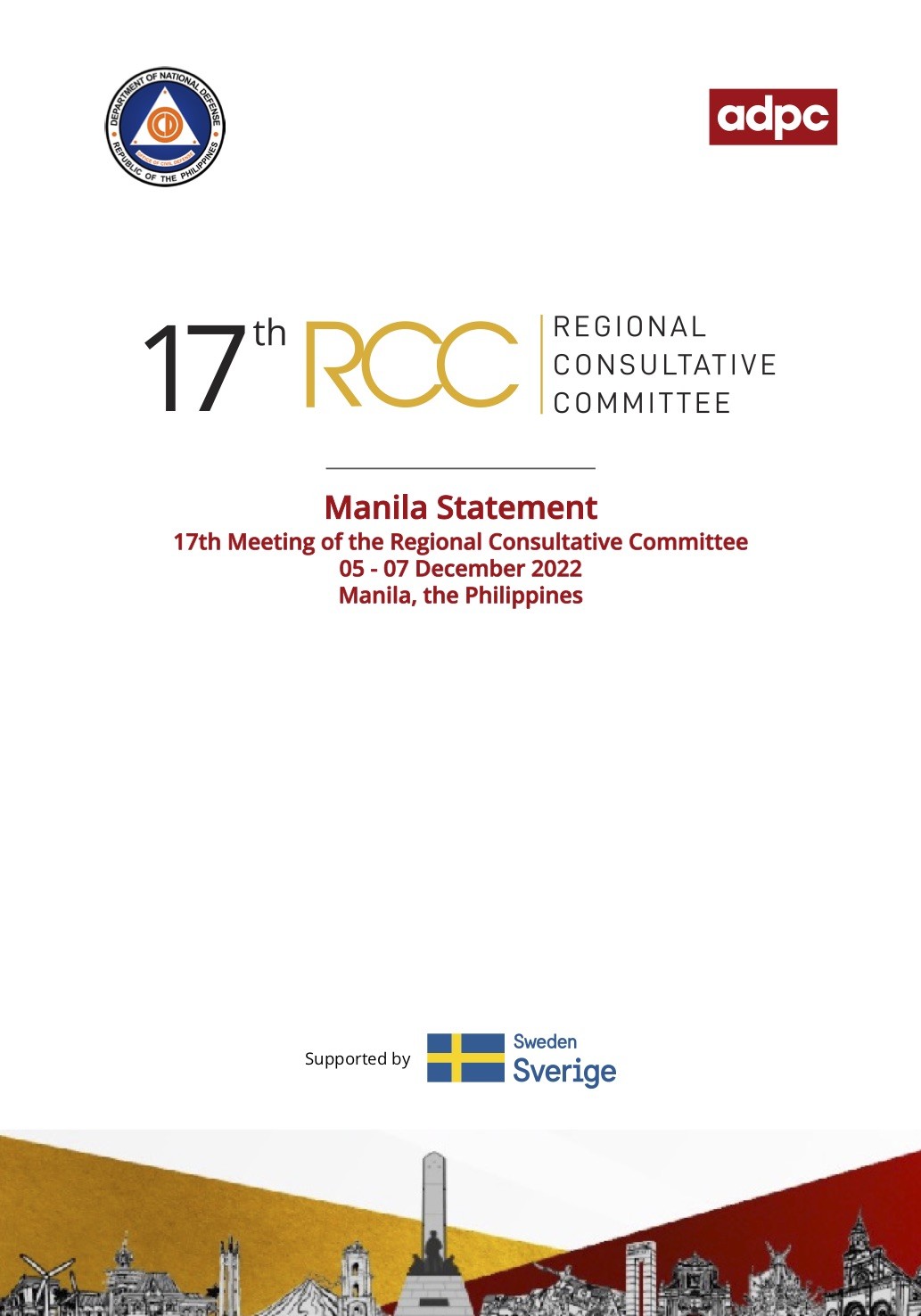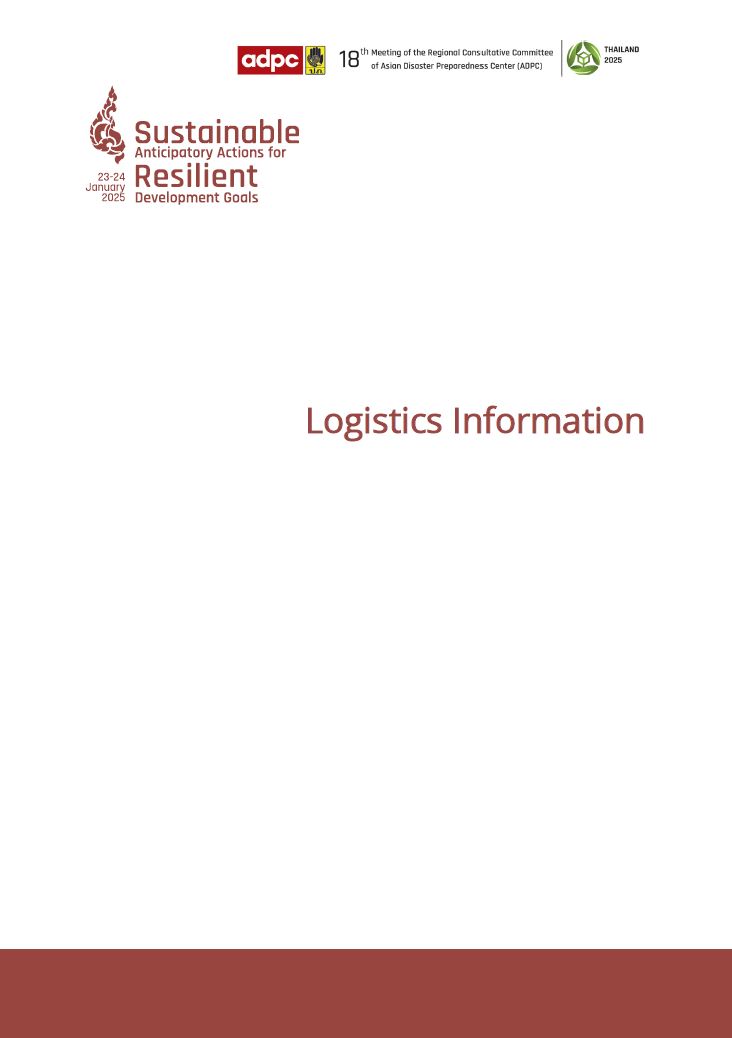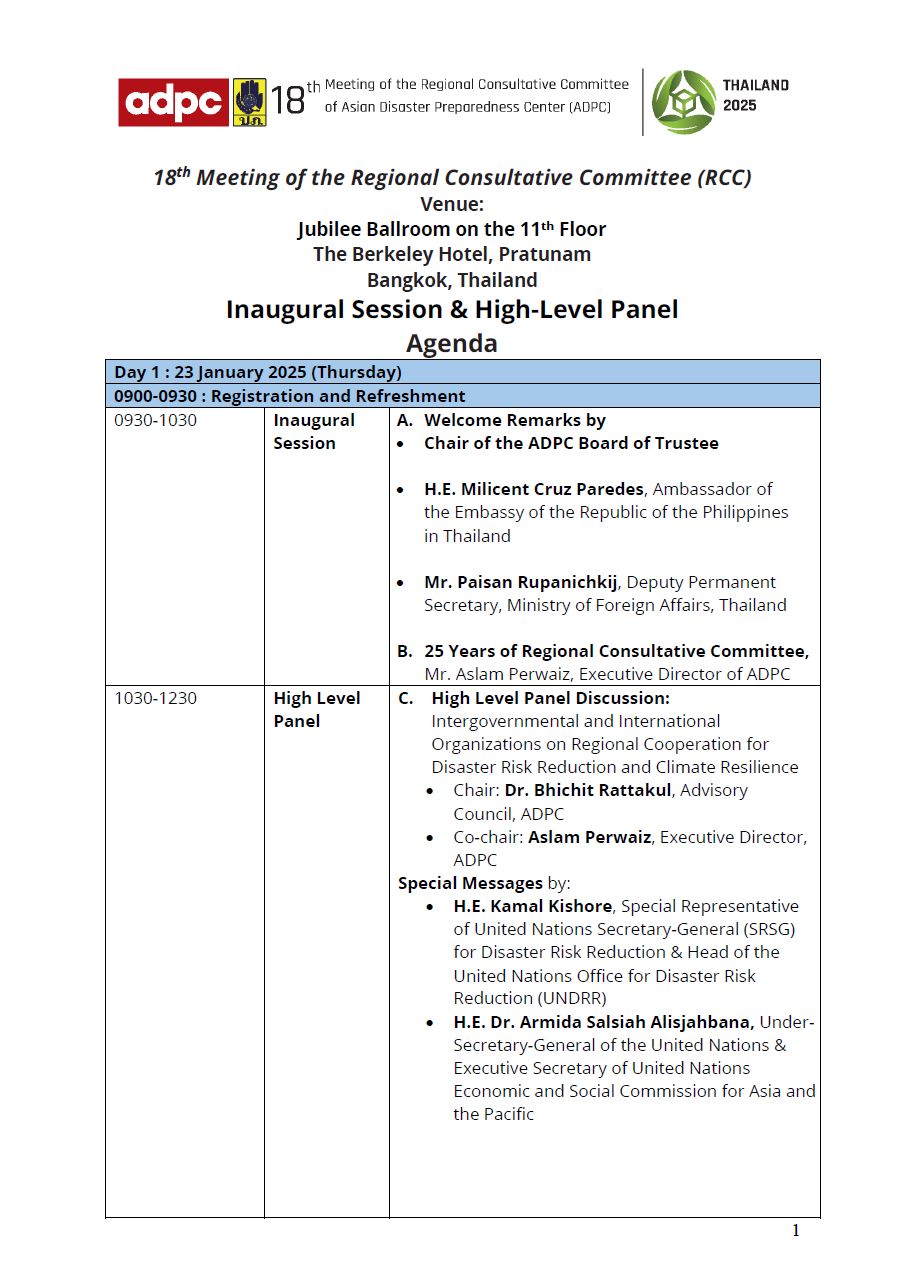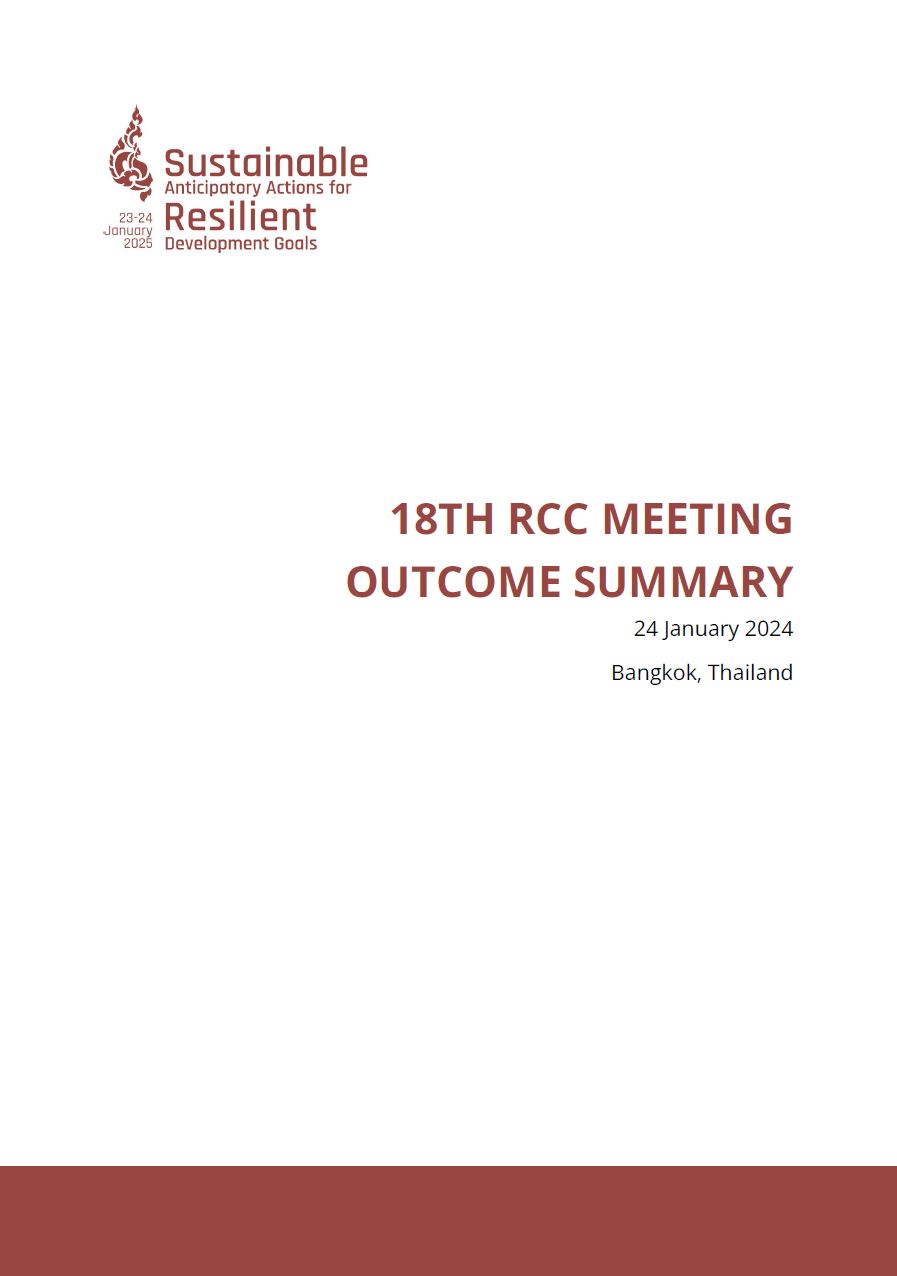RCC meetings
TIMELINE
RCC 1st Meeting:
Location:
Bangkok, Thailand
Dates:
Partnership:
Ministry of Foreign Affairs
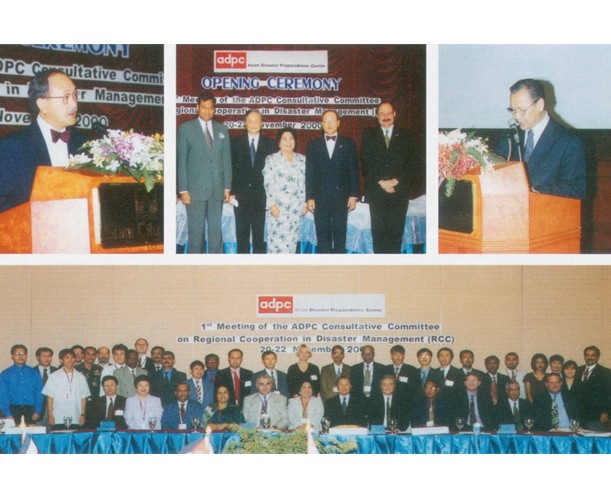
Outcome: The meeting called for a more effective water resource management system and ADPC to circulate the model of disaster management legislation among all countries. Recommendations were provided on the common country experiences in capacity building, training and public support for disaster management and mitigation.
Documents
RCC 2nd Meeting:
Location:
Bangkok, Thailand
Dates:
Partnership:
Ministry of Foreign Affairs
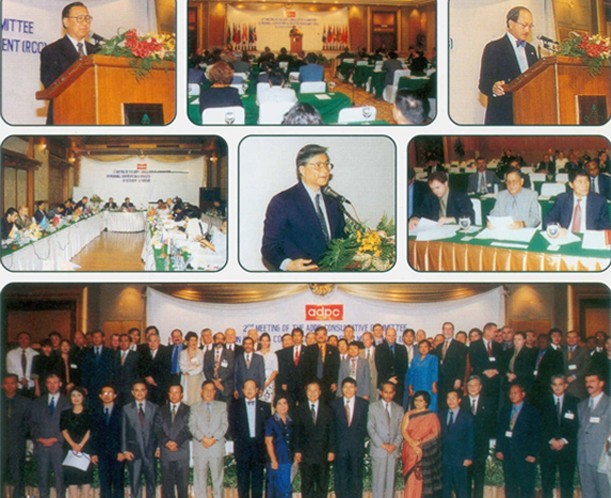
Outcome: A key outcome includes the development of the Statement on “Future Directions for Regional Cooperation and the RCC”, which encouraged RCC member countries to take on a Total Disaster Risk Management Strategy. This approach looks into incorporating a multi-hazard disaster risk management and reduction approach, including prevention, mitigation and preparedness as well as response and recovery.
RCC 3rd Meeting:
Location:
New Delhi, India
Dates:
Partnership:
Ministry of Home Affairs
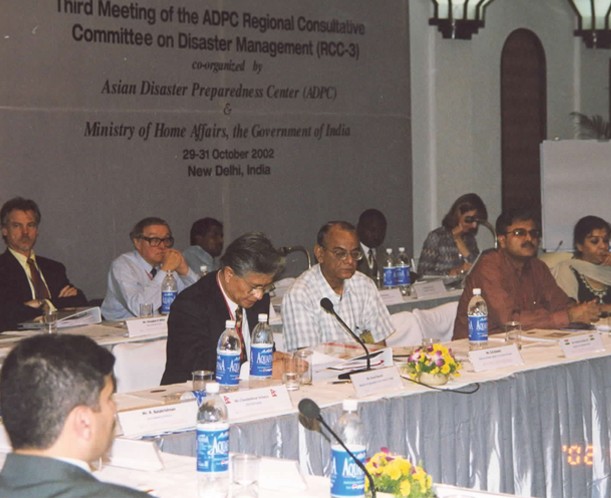
Outcome: The meeting facilitated discussions on the initial outline of a Primer on Urban Disaster Mitigation, a daily use how-to guide in volumes based on hazard type. The guide would draw on good practices and lessons learned in the Urban Disaster Mitigation (UDM) initiatives of AUDMP and other programs of ADPC as well as other institutions dealing with different aspects of UDM in the region.
RCC 4th Meeting:
Location:
Dhaka, Bangladesh
Dates:
Partnership:
The Government of the People’s Republic of Bangladesh
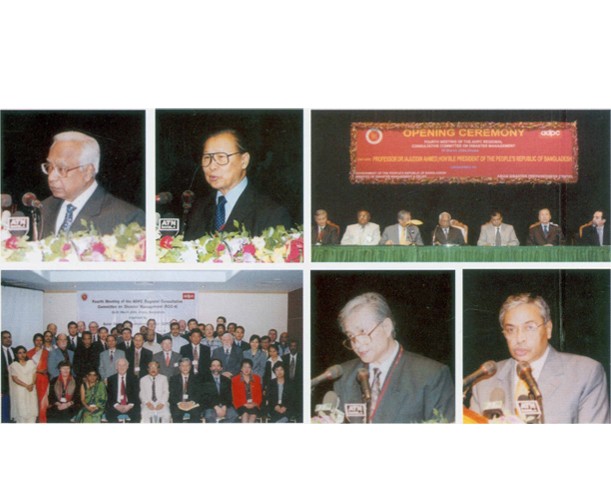
Outcome: The fourth RCC meeting led discussions in preparation for the Second World Conference on Disaster Reduction (WCDR) and member countries recommended priority areas to be addressed, including mainstreaming disaster risk management as an integral part of the development process.RCC4 also initiated the Mainstreaming DRR into Development (MDRD) program to ensure prioritization of DRR into national sectoral planning.
RCC 5th Meeting:
Location:
Hanoi, Viet Nam
Dates:
Partnership:
Government of Viet Nam
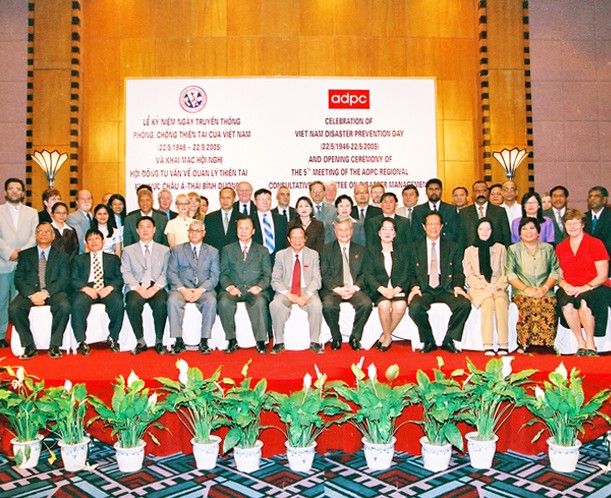
Outcome: Following implementation of the Hyogo Framework for Action (HFA), RCC member countries adopted the Hanoi RCC5 Statement, which called for mainstreaming as a key priority for action in accordance with the HFA.
“Recognizing the responsibility of the RCC as a mechanism, offers to serve as a useful forum and reporting mechanism through which the progress of the implementation of the HFA can be monitored by ISDR, and advocates that the 10-year HFA framework should be broken down into 2-year milestones of accomplishments to facilitate a workable implement of the HFA for each of the RCC Member Countries.”
Hanoi Statement, RCC5
The meeting also identified action areas for the RCC to support member countries, including: playing a greater role beyond supporting and monitoring, conducting capacity building programs for HFA implementation and providing guidance on the program in the key areas such as mainstreaming DRM into development.RCC 6th Meeting:
Location:
Kunming, China
Dates:
Partnership:
The Government of the People’s Republic of China
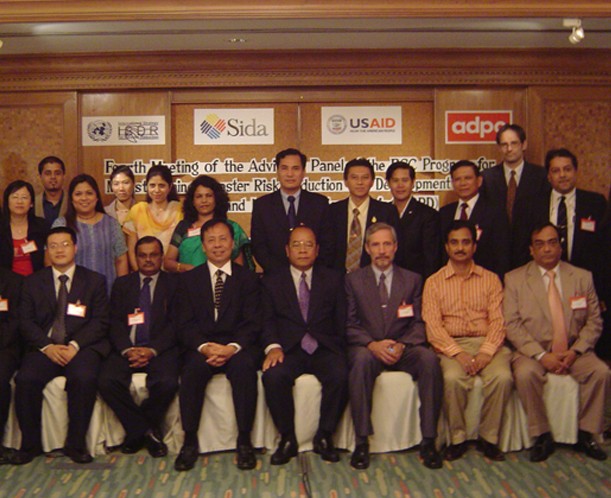
Outcome: The Kunming Road Map was developed to operationalize the Hanoi RCC5 Statement in three phases. The Road Map also included a plan for an RCC-MDRD program, Partnerships for Safe Development and Good Governance. The program was focused on encouraging member countries to realize the goal of mainstreaming DRR into development. Member countries reviewed their progress towards implementation of the Hyogo Framework for Action. Upon which, the RCC was called to act as a monitoring mechanism and consolidating progress of individual countries and documenting sector-specific progress.
RCC 7th Meeting:
Location:
Colombo, Sri Lanka
Dates:
Partnership:
Government of Sri Lanka
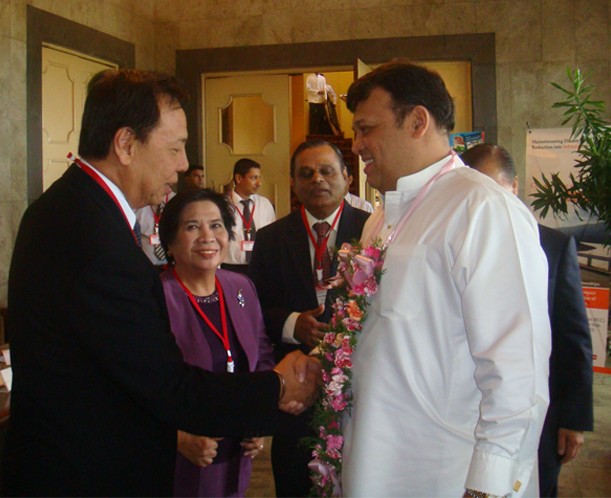
Outcome: In line with the theme, member countries affirmed their commitment to take up national programs on Community-Based Disaster Risk Management (CBDRM) in all high-risk communities. CBDRR Country Papers were submitted to assess the community-led disaster risk management initiatives within the member countries. The program document on Phase 2 of the RCC-MDRD project was reviewed and endorsed. ADPC established its role in supporting member countries to mobilize their resources, with support from multiple donors, to implement the priority activities identified by the RCC.
RCC 8th Meeting:
Location:
Manila, the Philippines
Dates:
Partnership:
Philippines Government
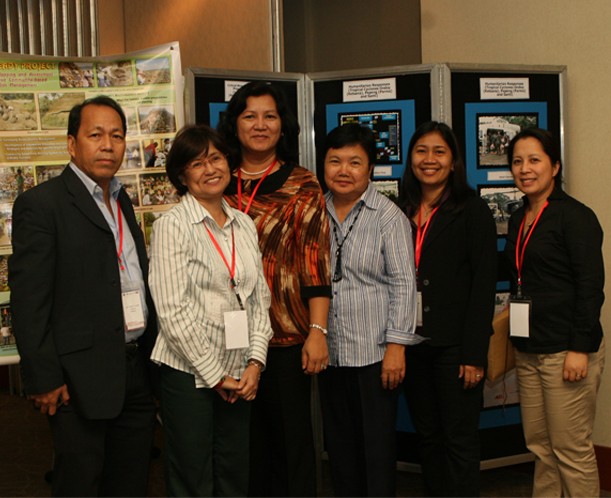
Outcome: Member countries assessed a working paper on “Implementing National Programs on CBDRR in High-Risk Communities,” based on the CBDRR country papers submitted in the previous RCC meeting. The session provided insight to the support partners and donors could provide in implementing national CBDRR programs.
RCC 9th Meeting:
Location:
Phnom Penh, Cambodia
Dates:
Partnership:
National Committee on Disaster Management (NCDM)
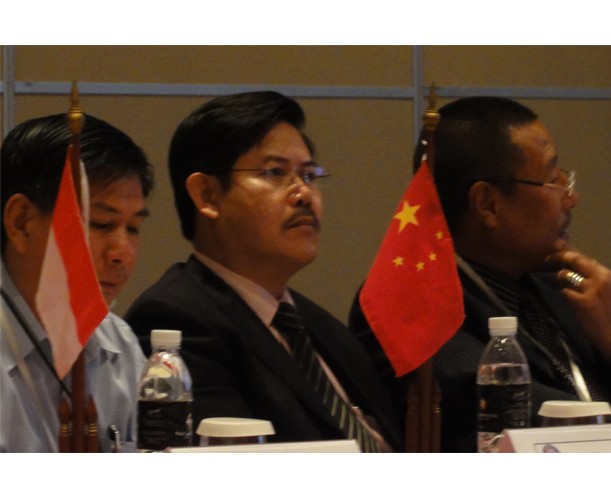
Outcome: Findings of the Independent Progress Report (IPR) of the RCC-MDRD program were presented. The program showed positive impacts on the member countries and discussions looked into expanding the RCC program into other important sectors, including: agriculture and environment. The ADPC Strategy 2020 overview was presented to identify the future work plan of ADPC. Member countries provided inputs to ensure the strategy meets their needs.
RCC 10th Meeting:
Location:
Ulaanbaatar, Mongolia
Dates:
Partnership:
National Emergency Management Agency (NEMA)
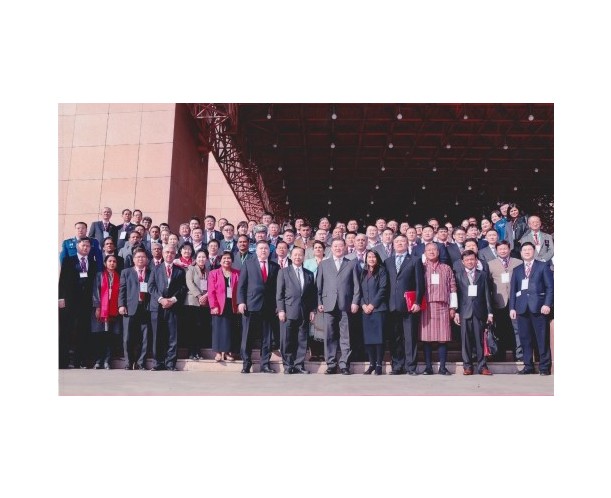
Outcome:In a discussion on accelerating the HFA over its last two years. A number of key options highlighted include: strengthening of livelihoods through promotion of employment and measures to increase agricultural productivity, promoting water and food security and marketing initiatives and improved ecosystem management.Upon reflecting on some of the key challenges in implementing the HFA, it was identified that local government authorities in the development sector did not have a mandate for DRR-related activities, which limited the overall effectiveness of capacity building and awareness raising initiatives. Decentralization of DRR and development responsibilities, to strengthen integrated planning and action at the local level, was identified as a potential way forward.
Development Partners
The 10th RCC Meeting was organized by the National Emergency Management Agency (NEMA), Government of Mongolia, and Asian Disaster Preparedness Center (ADPC), with support from the Government of Australia through AusAID.RCC 11th Meeting:
Location:
Nay Pyi Taw, Myanmar
Dates:
Partnership:
Relief and Resettlement Department, (RRD), Ministry of Social Welfare
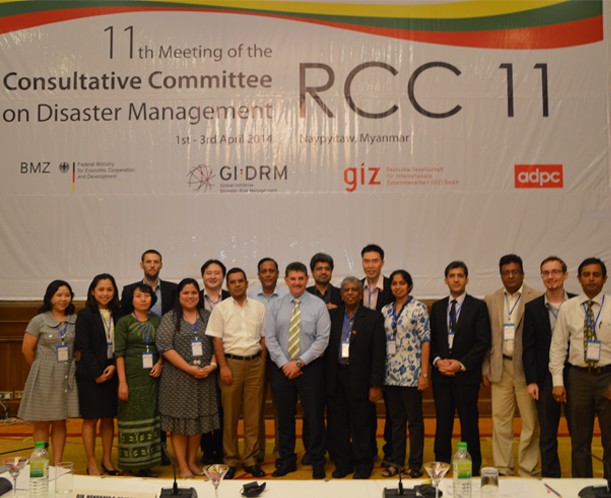
Outcome: During discussions regarding CCA and DRR concerns to be considered in future development agendas, participants recognized the need for climate-smart DRR in institutional mechanisms. Member countries further recognized the importance of DRR as a fundamental element to enhance sustainability and resilience. The meeting concluded with endorsement of the Nay Pyi Taw Statement, which provided recommendation towards ensuring mainstreaming DRR into development is an integral component of post-2015 development agenda or frameworks.
The Statement further highlighted the need to ensure mainstreaming is taken up as a whole-of-government responsibility, across all levels, and new partnerships between government, civil society and private sector is built for effective mainstreaming.
Development Partners
The 11th RCC Meeting was co-hosted by the Relief and Resettlement Department, Ministry of Social Welfare, Relief and Resettlement, Republic of the Union of Myanmar; and Asian Disaster Preparedness Center (ADPC), with support from the German Government through GIZ.RCC 12th Meeting:
Location:
Thimphu, Bhutan
Dates:
Partnership:
Department of Disaster Management, Ministry of Home and Cultural Affairs (MoHCA)

Outcome: Member countries adopted the Thimphu Statement which highlights ways member countries can transform the RCC mechanism to support meaningful implementation of the SFDRR, including: building knowledge of government officials and stakeholders, mainstreaming DRR into development, developing CBDRM strategies, undertaking DRR assessment and collection of DRR data. ADPC in its capacity as the Secretariat would continue to perform the role of technical advisor and develop the capacity of member countries.
Gallery
Visit our gallery. Click here.Development Partners
The 12th RCC Meeting was co-hosted by the Ministry of Home and Cultural Affairs (MoHCA) and the Department of Disaster Management (DDM), Bhutan; and Asian Disaster Preparedness Center (ADPC) with support from the German Government through GIZ.RCC 13th Meeting:
Location:
Islamabad, Pakistan
Dates:
Partnership:
The National Disaster Management Agency (NDMA)
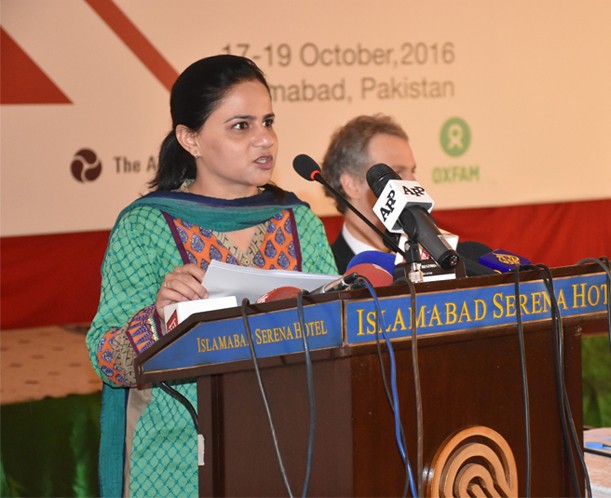
Outcome: Member countries discussed the importance of maintaining the RCC mechanism as a regional platform for the development and sharing of good practices. They further discussed ways to bring synergies among other regional initiatives to strengthen and build capacities in disaster management and climate change adaptation at the regional level. Discussions fed into the AMCDRR to strengthen member countries’ understanding of the post-2015 agenda and implementation of DRM.
Gallery
Visit our gallery. Click here.Development Partners
The 13th RCC Meeting was supported by the National Disaster Management Agency, Pakistan, the Government of Pakistan, Oxfam, The Asia Foundation and the Global Initiative on Disaster Risk Management (GIDRM).RCC 14th Meeting:
Location:
Kathmandu, Nepal
Dates:
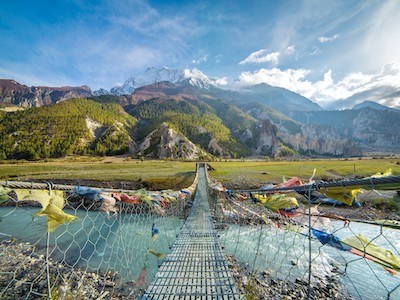
Partnership:
The Ministry of Home Affairs (MoHA)
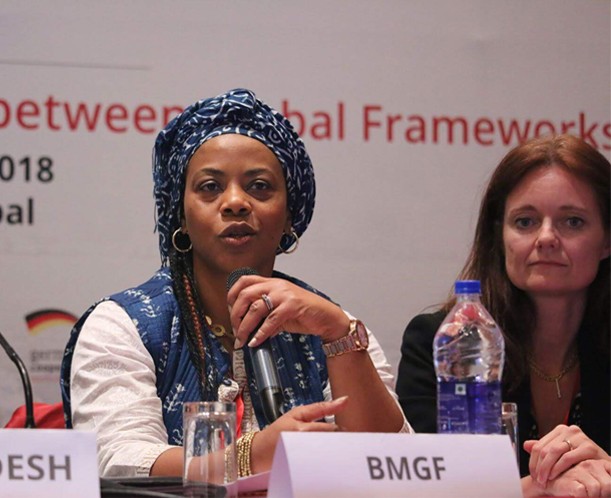
Outcome: In recognition of the value of enhancing coherence to support in the implementation of key global frameworks, the member countries adopted the Kathmandu Statement. The Statement highlights the member countries commitments to support various stakeholders in coherent planning and implementation of activities under different global frameworks and the RCC’s role in supporting the priorities of the countries work under different programs and projects.
Gallery
Visit our gallery. Click here.Development Partners
The 14th RCC Meeting was supported by the Swedish International Development Cooperation Agency (Sida) and the Germany Agency for International Cooperation (GIZ).15th RCC Meeting:
Location:
Bangkok, Thailand
Dates:
Partnership:
Department of Disaster Prevention and Mitigation (DDPM), Thailand
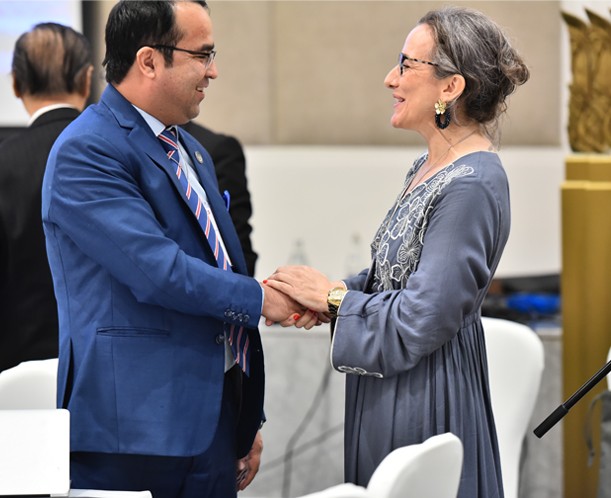
- Sub-theme 1: Coherence and inclusion: Enhancing the implementation of coherence between the global frameworks through inclusive resilience
- Sub-theme 2: Building resilience through inclusive and rights-based approaches
- Sub-theme 3: Understanding and using data for resilience
- Sub-theme 4: Defining resilience in fragile contexts
In line with the context of the theme and sub-themes, the following were the objectives of the 15th RCC meeting:
- Discuss and identify milestones and critical priorities on the progress of the RCC member countries in reporting target E of by 2020, and ensuring coherence for resilient, integrated and inclusive societies in Asia and the Pacific;
- Facilitate, share and present good practices and practical integration on building resilience through inclusive and human rights-based approaches in RCC member countries;
- Share milestones, needs, and challenges of the RCC member countries on the Sendai Framework Monitoring (SFM), and identify innovative approaches in utilizing data for efficient and effective disaster and climate resilience measures;
- And, discuss experiences and strategies towards building resilience in fragile contents. The 15th RCC meeting builds on the momentum established from the Islamabad Statement (13th RCC, 2016) and the Kathmandu Statement (14th RCC, 2018) coherence, including the Asia Regional Plan (2016), the Ulaanbaatar Declaration (2018), and most recently from the Global Platform on DRR (2019).
16th RCC Meeting:
Location:
Virtual meeting
Dates:
Partnership:
- Ministry of the Interior and Safety (MOIS), the Government of South Korea
- Asian Disaster Preparedness Center (ADPC)
Supported by:
Swedish International Development Cooperation Agency (Sida)
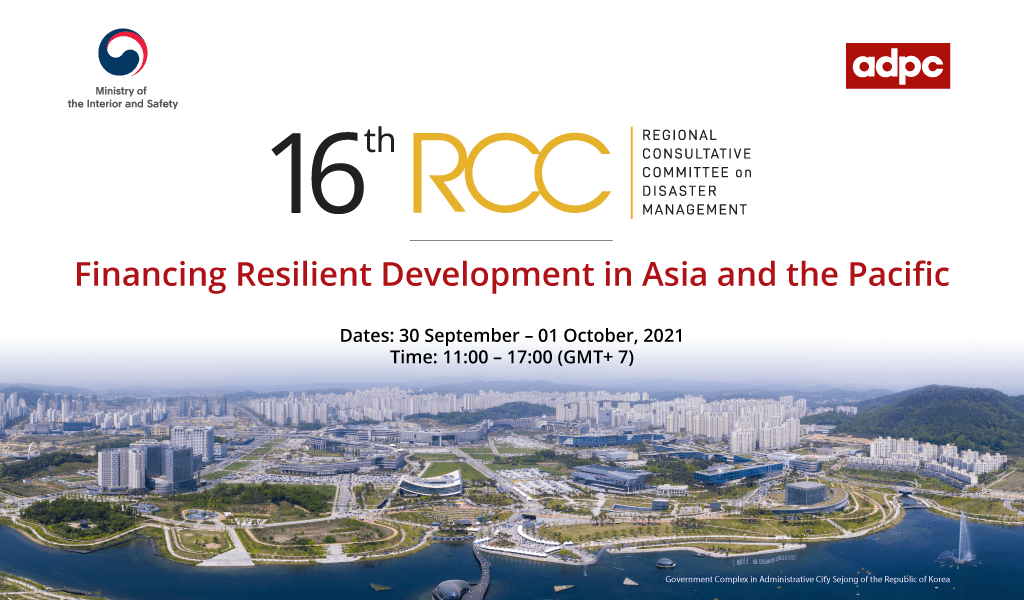
16th RCC click here
Summary: The 16th RCC meeting will be held virtually in collaboration with the Republic of Korea’s Ministry of the Interior and Safety (MOIS). MOIS establishes, supervises, and adjusts policies related to safety and disaster management such as emergency countermeasure, civil defense, and disaster prevention in the country.
The overarching theme of the 16th RCC meeting is “Financing Resilient Development in Asia and the Pacific”. The meeting comprises thematic and plenary sessions:
- Thematic Session 1: Enabling Environment for Financing Resilient Development
- Thematic Session 2: Financing for Resilient Development and Growth
- Plenary Session 1: Innovation in Resilient Development Practices
- Plenary Session 2: Inclusion in Localization of Resilient Development Practices
- Plenary Session 3: Regional Cooperation for Resilient Development, Deliberate on regional cooperation for resilient development by RCC Member Countries
Expected Outcomes: 16th RCC Statement, Activities identified to outline an RCC Annual Work Plan, and Technical Meeting Report on Financing Resilient Development in Asia and the Pacific
Documents

A Framework for Integrating Human Rights and Gender Equality into Disaster Risk Reduction and Climate Resilience
17th RCC Meeting:
Location:
Manila, the Philippines
Dates:
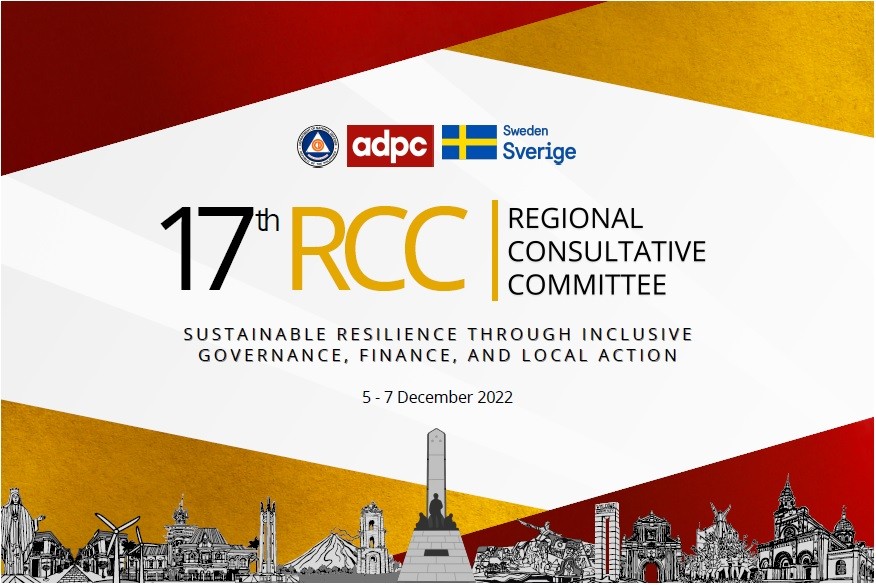
Partnership:
- Office of Civil Defense, Department of National Defense, Philippines

Supported by:
Swedish International Development Cooperation Agency (Sida)
Summary:The 17th RCC Meeting will be held in Metro Manila, Philippines and co-hosted by the Office of Civil Defense (OCD). OCD is the implementing arm of the Philippines National Disaster Risk Reduction and Management Council (NDRRMC). The Overarching Theme of the 17th RCC meeting is “Sustainable Resilience Through Inclusive Governance, Finance, and Local Action”
This is supplemented by three (3) sub-themes:
- Achieving the 2030 Goals and Targets through Coherence and Regional Cooperation
- Strengthening the implementation of climate and disaster risk reduction through inclusive approaches
- Advancing public and private investments and financing for building resilience
In line with the context of the theme and sub-themes, the following are the objectives of the 17th RCC meeting:
- Utilize the 17th RCC meeting as a solutions-oriented platform to accelerate the implementation of the Sendai Framework, Paris Agreement, and the Sustainable Development Goals through inclusive governance, finance, regional cooperation, and local action
- Establish key action points to enable the RCC to support member countries in implementing the 2030 Global Frameworks
- Deliberate and share good scalable practices on public and private financing for resilience building
- Identify inclusive solutions to accelerate the implementation of the 2030 Global Frameworks
Expected Outputs: RCC Meeting Report, 17th RCC Manila Statement, Fundamental needs and actions required by RCC member countries to advance the implementation of the 2030 global frameworks
18th RCC Meeting:
Location:
Bangkok, Thailand
Dates:
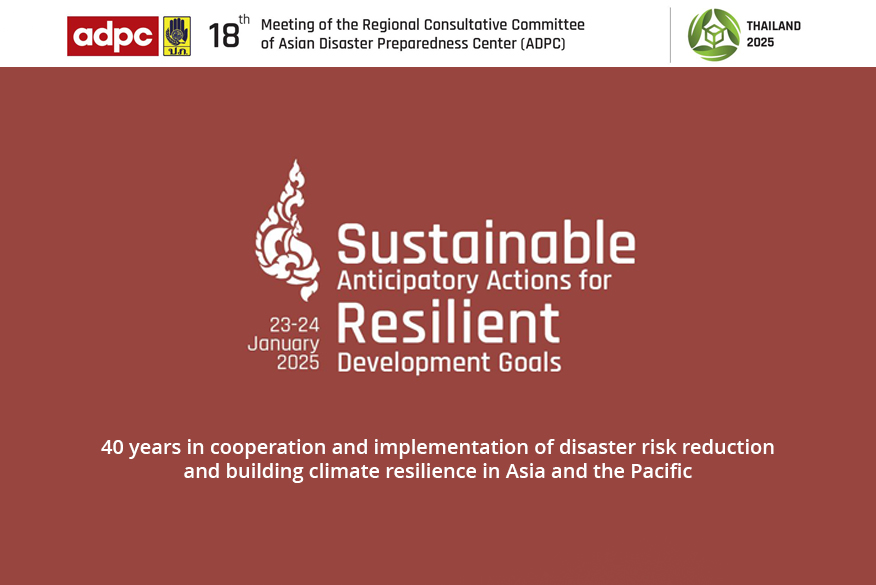
Partnership:
Department of Disaster Prevention and Mitigation, Ministry of Interior, Thailand

Summary: The 18th RCC Meeting will be held in Bangkok, Thailand, and
co-hosted by the Department of Disaster Prevention and Mitigation (DDPM). Guided
by the overarching theme of "Sustainable Anticipatory Actions for Resilient
Development Goals", Day 1 of the meeting will discuss the
technical aspects of advancing risk reduction through technology and innovative
solutions, supporting the localization of priority actions, and exploring
options
for mobilizing disaster and climate financing from global, regional, and
national
mechanisms. Day 2 will have the 5th Brian Ward Memorial Lecture, followed by
the ADPC’s Development Partners’ Forum 2025.
The 18th RCC meeting will build on the key outcomes of the APEC 2022 meeting under the Thailand presidency and the recent Asia-Pacific Ministerial Conference on Disaster Risk Reduction (APMCDRR) hosted by the Government of thePhilippines in October 2024, the ASEAN Committee on Disaster Management (ACDM), and the 2024 United Nations Climate Change Conference (COP29) held in Baku during 11-22 November 2024. It will also draw insights from many events organized by Thailand and other countries to commemorate the 20th year since the devastating 2004 Indian Ocean Earthquake and Tsunami.
The objectives of the 18th RCC meeting include the following:
- Understanding the current state and challenges around systemic risks, emphasizing the need for increased funding, innovative approaches, and multi-stakeholder engagement to enhance resilience.
- Accelerating existing national strategies for RCC member countries to access finance and enhance investments to support the implementation of priority actions of the Sendai Framework for DRR.
- Highlighting the importance of systemic risk governance, risk analytics, and preparedness actions to achieve sustainable development goals (SDGs)
- Exploring practical solutions such as integrating global frameworks into national planning, strengthening disaster risk governance, promoting climate change adaptation, and enhancing international cooperation.
Documents
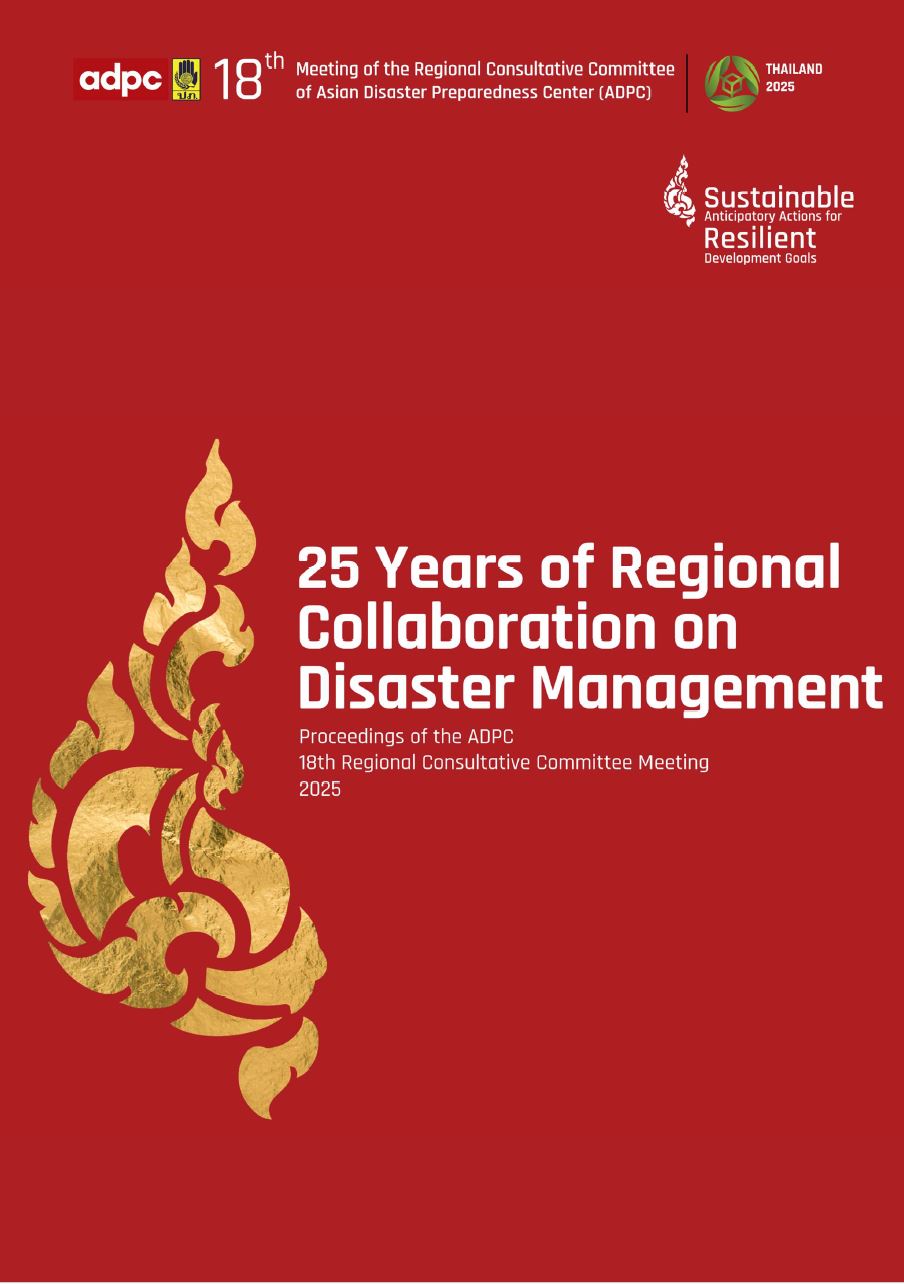
25 Years of Regional Collaboration on Disaster Management Proceedings of the ADPC 18th Regional Consultative Committee Meeting 2025

